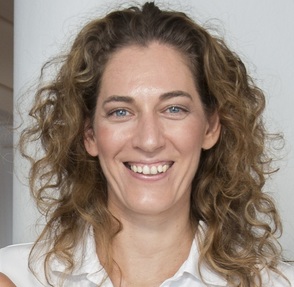 Marilize Worst challenged supply chain professionals at the SAPICS conference to work towards zero waste to landfill Marilize Worst challenged supply chain professionals at the SAPICS conference to work towards zero waste to landfill Change is needed throughout entire product lifecycle In South Africa we produce R25.2 billion worth of waste annually – 90% of landfills are composed of avoidable waste. There is growing pressure on companies to understand the true value of waste instead of relegating the problem to the SHEQ or finance team. “Forward thinking businesses are starting to see waste management as a value-add to the bottom line,” said Marilize Worst, Managing Director from SmartMatta, at the recent 38th Annual SAPICS Conference for supply chain professionals. “It is no longer enough to just consider waste management merely as a cost saving exercise.” Think of waste as money down the drain The typical waste hierarchy is first reduce, then reuse, then recycle. Making a real difference however requires recreating a current supply chain as a continuous positive development cycle. “This optimisation of value throughout the life cycle of products is often referred to as a closed loop approach,” explained Worst. “The cycle should preserve and enhance natural capital, optimise resources, and minimise system risks.” Modern consumers, when presented with two brands they like, will choose the one that is better for the environment. Recyclable packaging has already proven popular. Knowledge of the way carbon emissions were saved – and waste to landfill reduced – during the processing and transportation phases of a product could follow the same route to influence buyer decisions. Find the value in waste “Currently the consumption pattern of products is linear,” said Worst. “We take materials out of the ground, create a product, we then throw the waste away, although we do attempt to recycle some of it.” “There’s nothing wrong with waste; it depends on how you manage it. The aim isn’t zero waste, but zero waste to landfill. The concept of circular economy is that we leave nothing behind.” A circular economy is also financially valuable. The benefits to those companies participating in a circular economy include competitiveness, brand protection and customer loyalty, material/energy recovery, better supplier relationships, and ecological, health and social benefits. Approach waste management from a systems perspective To effectively develop a waste management strategy, a baseline of data and resources that represents the current situation should be created. From there, a waste management strategy based on this baseline should be developed, obtaining input from all functional areas in the business. Communication and feedback into the strategy should be allowed to make sure the plan is not just determined at the boardroom table, but aligns with the way a business actually operates. The plan must be reassessed and realigned every time major operational changes are made. “Case studies have shown that changes in procurement strategies can reduce waste to landfill to almost zero,” said Worst. “The wider supply chain function should also focus on reducing waste generated within complex supply chains.” The areas of improvement in supply chains include creating economies of scale by maximising recovery and restoring value, analysing and reducing energy consumption and carbon emissions, and finding synergies between the generators and potential users of waste. Further improvements can be made by improving package design and selecting less harmful materials, reduce carbon footprint by optimising transport to and from distribution centres, and also by optimising repacking or refurbishing of product returns. “Reducing waste has to be a strategic priority for every business,” warned Worst. “What we have is all we have; there is no backup earth, no hidden resources, no added extras.” Marilize Worst will be a speaker at the regional SAPICS conferences for supply chain professionals in August. More information is available at http://www.sapics.org/events/sapics-regional-conferences/ ENDS MEDIA CONTACT: Idéle Prinsloo, 082 573 9219, [email protected], www.atthatpoint.co.za ABOUT SAPICS – your supply chain community SAPICS is a professional knowledge-based association that enables individuals and organisations to improve business performance. SAPICS builds operations management excellence in individuals and enterprises through superior education and training, internationally recognised certifications, comprehensive resources and a countrywide network of accomplished industry professionals. This network is ever expanding and now includes associates in other African countries. For more information on SAPICS please visit: Website: www.sapics.org.za Twitter: @SAPICS01 LinkedIn: SAPICS group Facebook: OperationsManagement ABOUT APICS SAPICS is a proud APICS' exclusive Premier Channel Partner for Sub Saharan Africa. APICS is the leading professional association for supply chain and operations management and the premier provider of research, education and certification programs that elevate end-to-end supply chain excellence, innovation and resilience. APICS Certified in Production and Inventory Management (CPIM) and APICS Certified Supply Chain Professional (CSCP) designations set the industry standard. With over 37,000 members and more than 250 international partners, APICS is transforming the way people do business, drive growth and reach global customers. APICS is based in the USA and has a broad global footprint. www.apics.org
0 Comments
|
Welcome to the SAPICS Newsroom. For media releases prior to August 2014, please click here.
Archives
January 2017
Categories
All
|

 RSS Feed
RSS Feed